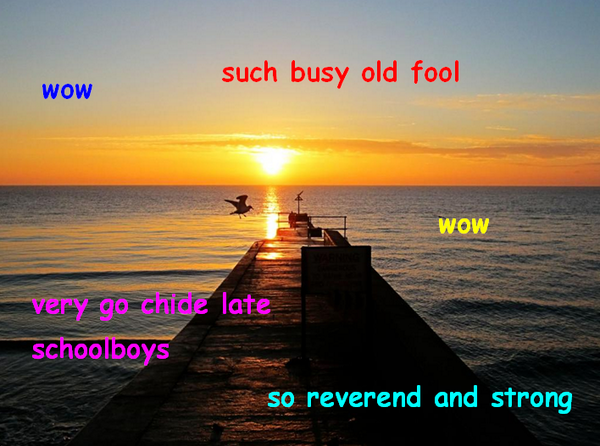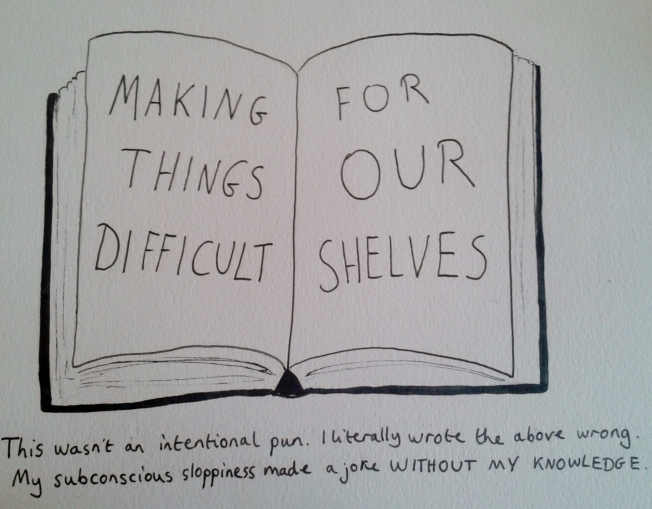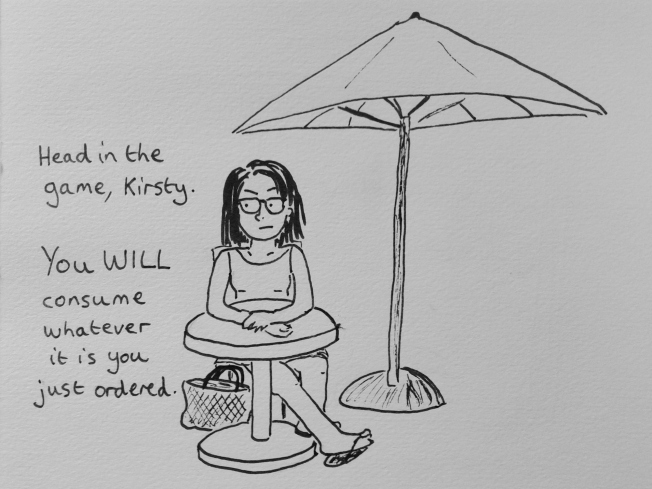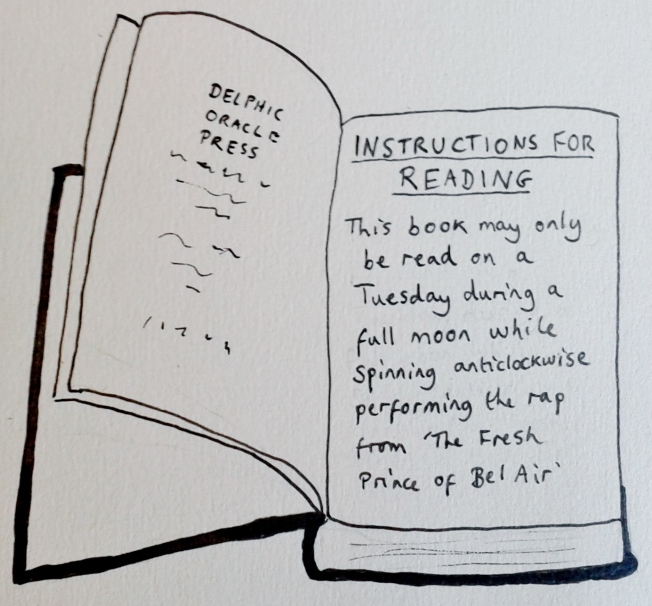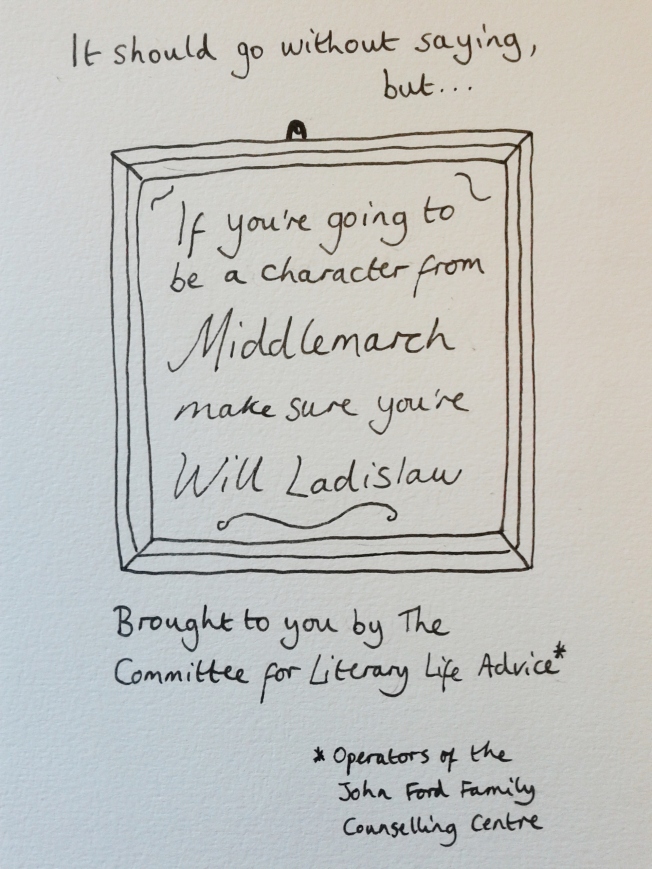Or, dang I do have problems with Academic Advice literature, don’t I. Not all of it! #notallacademicadvice #butalotofit
‘Do yourself a favour’, reads a recent headline in the Times Higher Education. ‘Learn to say no’.
Those acquainted with my half-formed musings will know that I have what we might call a one-sidedly fractious relationship with the THE. This is not based entirely on the fact that all that sub-Private Eye material (and you may also know of my dislike for Private Eye) about their parody university is the least funny thing ever to be marketed at university academics, up to and including that ‘JSTOR and Chill’ t-shirt. Rather, I find that the hot higher education #content provided by the THE runs the gamut from ‘useful and interesting’ to ‘actively damaging to the profession‘, taking frequent pit stops at ‘oh, this shite again’ and ‘I appear to have nutted my head entirely through my desk’. It is to the latter that I shall now turn.
This is a bit mean (perhaps a lot mean). The subject I’ll be wittering on about today is the article I linked to at the top of this post, by researcher Helen Kara, which takes the classic Academic Advice form: you are doing this thing wrong. Stop doing this thing wrong.
The thing in question is: academic overcommitment: saying yes to too much. Kara’s piece is well-intentioned and makes some good points: stop saying yes, she argues, because its unfair both to yourself and to those who rely on you. Say no, keep your workload manageable, and actually perform the responsibilities you take on properly. She notes that ‘saying “no” can be really difficult, particularly if the person asking is, for example, senior to you, or someone to whom you owe a favour’ – or if you’re early in your career. Kara provides some scripts for these situations, and they are genuinely (genuinely. I’m not being sarcastic here, for once) really useful. This is, in many ways, a really valuable piece, and I don’t want you (dear reader) to discount it just because muggins here has capital-V Views about it.
The thing is. The thing is the thing is.
It’s nice to have recognition that ‘just saying no’ is harder for those further down the ladder, and that indeed there are other factors that can make refusal difficult, or at least complicated, for people at all stages of the careers. It’s nice to have some scripts to use. But recognition is really all this is, scripts notwithstanding. Academia is a favour and reputation economy with some very big power imbalances indeed; the various pressures of this can’t always be dissipated by even the politest of refusals. As academics we navigate a landscape that can’t be easily sorted into yeses and noes, that is far more complex than appeals to judgement and agency make clear.
And the other thing is.
Kara ends the piece with an appeal to ‘ethics’, which I’ll quote in full:
There is an ethical point to this, too. We forget to notice that if we don’t look after ourselves properly, we can’t do our jobs or look after other people. I love Deborah Netolicky’s memorable description of ethics as the “unsexy undergarments” of academia. I think we should pay attention to ethics all the time, just as we remember, every day, to wear our undergarments. People who overcommit are a danger to themselves, risking their health and happiness, and that can damage their families and friends as well. They are also a danger to their colleagues: I know from experience, as someone who is quite good at managing time and workload, that a collaborator who misses deadlines can cause great stress in my life. So for our own benefit, and for the benefit of our colleagues, families and friends, we have an obligation not to overcommit, and that means learning to say “no”.
Yes, I see the point here. It’s not ethical to let people down, and we should strive never, in the course of our work or otherwise, to damage or impede the lives of others. This is not a small issue. But if you’re going to raise the topic of ethics in a piece like this then questions are going to be begged, and those questions are going to go beyond questions of personal ethics to questions of institutional, societal ethics: the contexts that personal ethical choices take place within. Kara has done really useful and interesting work on research ethics, and my intention here is not to minimise or trivialise that – though I would argue that her handwaving final paragraph does that for her. But ethics in higher education is larger than the personal or the interpersonal, and when you are dealing with the cavernous power differentials of this profession it is dangerous – and yes, unethical – to frame the disembodied agency of the individual as the sole site of ethical choice. I’m overstating what I assume is Kara’s actual position, but I’m taking it from the paragraph above.
And that brings me back, not without trepidation, to the wording of the piece. ‘Learn to say no’. The article circles around the word ‘no’, returning to it at the ends of paragraphs, always with the same implication: ‘no’ is clear. It is to be used to claim agency. Learn to say it, and your agency will be recognised and respected.
Except. ‘No’ swims through so much of what we are told, in social environments that may be challenging or dangerous, we should say and do. ‘Just say no’ to drugs. ‘No means no’. ‘No’ claims agency, keeps you safe. Except when it doesn’t.
Learning to say ‘no’ guarantees nothing. It does not guarantee that a person who wants something from you will not use the power they have to get it anyway. We err, and we endanger ourselves, when we trust this word. It carries no spell to preserve us. In the light of scandalous abuses of power in the academy, I do not believe that this is the ethics of refusal we need to focus on.
OK, it may be that I’m going a bit over the top in response to a light-heartedly-toned piece about agreeing to do too much peer reviewing. And I do want to make very clear that this is not something that I’m entirely qualified to speak on: I have not experienced harassment or abuse within academia, and I am not equating the mere experience of being subject to unequal institutional power relationships to the experience of being abused through them. But decisions over workload take place within the same mesh of reputation and obligation and power that harassment and abuse does. We all negotiate this every day, no matter where we sit in the hierarchy or what things we are trying to procure or avoid. The great, great majority of these interactions will be relatively benign, but even within them ‘no’ is subject to negation or negotiation: a refusal to take on an admin responsibility may be ignored, overruled, or renegotiated, often for perfectly sound reasons. Kara’s ‘no’ essentially takes place in an empty political space, in which words carry the full weights of their intentions: no means no. There is nothing more to say.
This captures much of my unease with a lot of Academic Advice Literature. I find it tends, as a feature of the genre, to depoliticise: to strip acts like saying ‘no’ of their political weight, to site the forces pushing against them into the (depoliticised, depersonalised, degendered, deracialised) bodies of shy or unwilling individuals. Just claim agency, just say no. I am not arguing against Kara’s purpose, in the sense that more refusal – and, crucially, more freedom to refuse – and thus more manageable workloads would be a pretty uncomplicatedly good thing. However, I’m uneasy with this depoliticisation, and most of all with Kara’s formulation of personal ethics. It’s not victim-blaming – I don’t think one can really be termed a victim of promising to write too many book chapters, even if they are painful to do – but it partakes of some of the same mechanisms, some of the same blinkeredness, and some of the same language. Learn to say ‘no’, by all means. But understand what ‘no’ can’t do, too.
